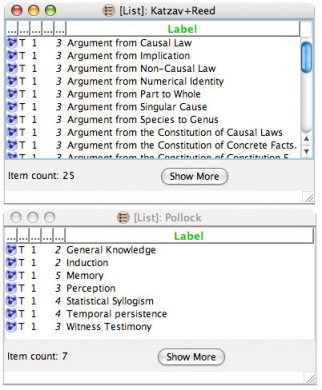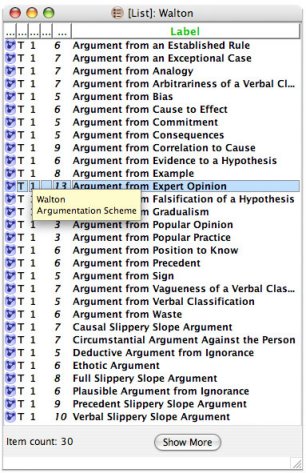| |
Argumentation Schemes: Compendium templates for Critical Thinking
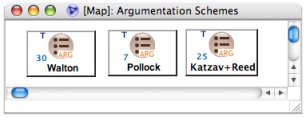
The three Argumentation Schemes
once you've dropped them into Compendium.
The screens below show their contents, one map for each scheme. |
Download now: CompendiumArgSchemes.zip
and drag+drop it onto a Compendium window.
When prompted, import as zipped XML:
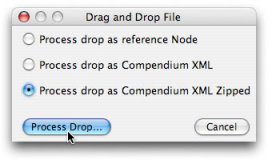
|
You recognise a piece of music as rap, 50's rock'n roll, opera or punk as soon as it starts: it has structural properties that you have learnt to recognise. By analogy, Argumentation Schemes are 'patterns' for constructing and analysing arguments, and as these get familiar, you'll start hearing and reading differently as you listen to a debate on the radio, watch a documentary, or engage with a learning resource.
A mental palette of argument schemes will help you spot when someone is making a certain kind of 'move' in a debate: you're better equipped to critique it. It'll also help when you have to put together your own case. Argument mapping tools can help analyse and construct arguments by rendering these moves as a visual palette of schemes.
Example: When someone argues that they should be believed because an expert agrees with them, what exactly are they claiming and how can you challenge this?
There are in fact a number of Critical Questions you can ask, which pinpoint the assumptions behind such an argument, e.g.
Is the claimed expert really authoritative in the relevant field?
Did the expert really say what is claimed s/he said?
Is the expert known to be trustworthy?
Do other experts agree with this expert?
Is there any evidence to back up the expert's opinion?
(paraphrased from the work of Douglas Walton)
You can now load the "Argument from Expertise" scheme in Compendium, in order to visualize the structure of this kind of argument, and seed your thinking or discussions with critical questions (see map below)
There are many other schemes and critical questions, some of which will be familiar to you (e.g. making an argument by analogy), while others are likely to be new to you.
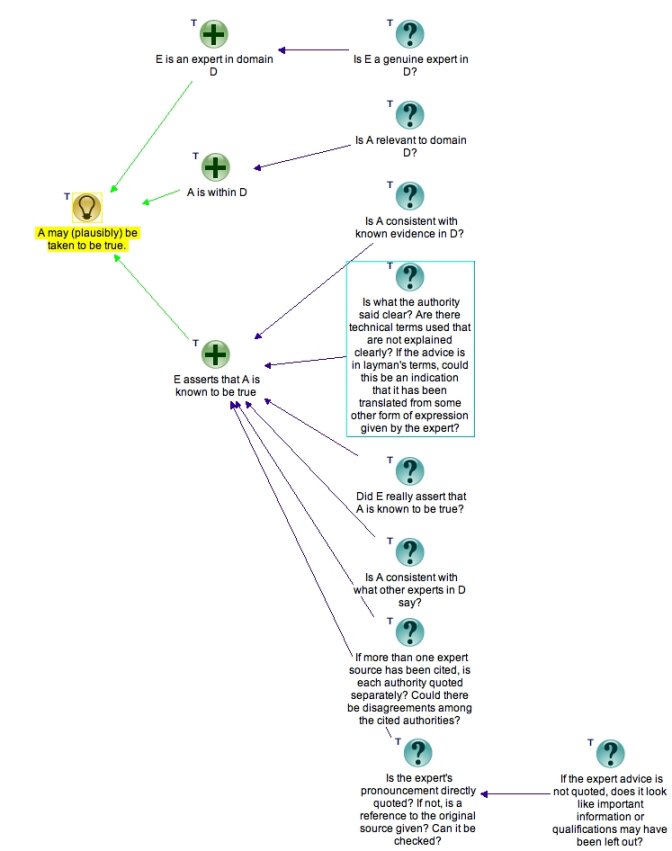
All the nodes are pre-tagged for you, so using the Tagging Interface, you can immediately filter the nodes by Scheme, Conclusion, Premise and Critical Question (plus of course add your own tags)...
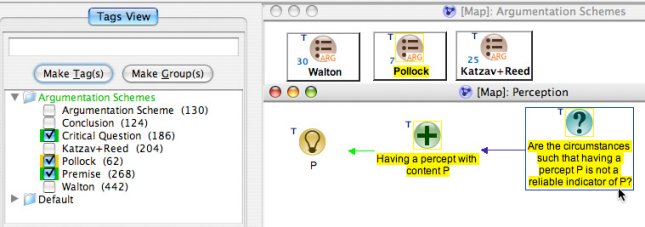
|







